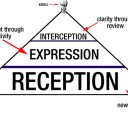Two weeks ago, as the carbon tax passed, newspapers everywhere focused on a front page to sell papers: the kiss. The Queen visited and television stations derided the PM’s lack of curtsy. Every monday, without fail, Twitter will light up with tweet after tweet directed at ABC’s Q&A. Because the media have no choice but to factor in our opinion, they are forced to pander and to include. After years of sitting in front of the idiot box, we have gained the power to reach out and click. We are in control of what we view and consequently, we are indirectly in control of what gets produced.
Isn’t it wonderful? Finally, we get the media we want. We have become a part of good, honest entertainment on the daily. It’s fantastic. That is, if it stays honest.
Unfortunately, we’re seeing more and more cases of manipulation. It’s unlikely that Karl Stefanovic has an audience interested in ‘planking‘ (the teenage pastime which involves lying face down on arbitrary objects) but he reenacted the craze anyway. Why? Because Today knew it would be passed around online: simply free advertising.
Online media is an advertiser’s dream. In the way that television heralded widespread access to the population, the Internet provides an illimitable audience ready to consume.
Viral media – that is, media which is passed on socially – is the new ‘word of mouth’, one of the most desirable forms of advertisement. It is free and carries the personal recommendation of someone you know and trust. But along with our adoption of technology has come nefarious use in the hands of promoters. When a shameless stunt is pulled, it’s not surprising some of us feel cheated.
It’s pretty obvious that the US version of “Family Feud” wasn’t innocent when they proposed the topic “Things which you put in your mouth but don’t swallow” to a minister’s wife (btw, there’s a reason news.com.au doesn’t credit the writer on that piece – shame on you), and we have certainly gotten to a point where flash mobs have completely lost all element of surprise.
And what about the serendipity of things going well on their very own? Can we be impressed if we have to constantly ask ourselves if we’re being tricked?
For all Australia’s pomp and circumstance, it’s not surprising that we are easily fixated upon curtsying for the queen, or the kiss between two former rivals, but I do find it hard to wonder whether we’re best served with such distractions. There are plenty of advertising campaigns which intrigue us as they unfold, but if all media production stoops to such obvious manipulation, will we ever be surprised again?



I had a long thoughtful comment and it disappeared.
So I watched the clip, only got a minute in and now I want to punch that dude in every orifice.
And his dog.